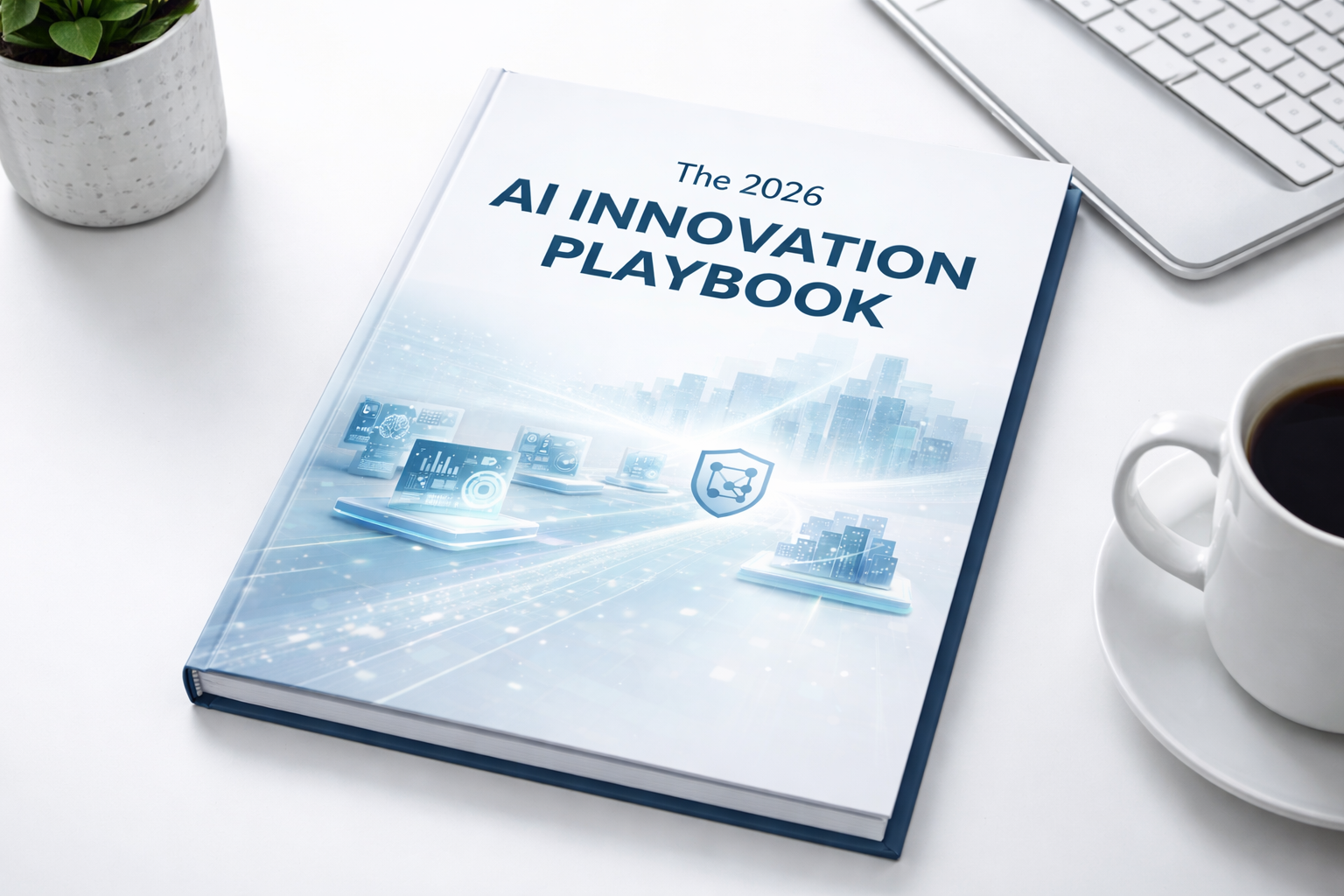As the demand for artificial intelligence continues to rise, so does the awareness of its environmental footprint. The computational power required to train and deploy AI models can be significant, leading to increased energy consumption and carbon emissions. However, AI can also be harnessed to reduce its climate impact through innovative solutions. Here are five ways AI can help mitigate its environmental effects, along with five startups actively working on these challenges.
This months Traction Five: New Podcast Format
1. Energy Optimization in Data Centers
AI can analyze and optimize energy consumption in data centers, which are critical for hosting AI models. By implementing AI-driven management systems, companies can dynamically allocate resources, adjusting power usage based on demand and optimizing cooling systems. This leads to significant energy savings and a reduced carbon footprint.
Featured Company: DeepMind
DeepMind, a subsidiary of Alphabet Inc., has developed an AI system that reduces energy consumption in data centers by up to 40%. By using deep reinforcement learning to predict and manage cooling needs, DeepMind demonstrates how AI can drive substantial efficiency gains in energy-intensive environments.
2. Sustainable AI Model Training
Training AI models often requires substantial computational resources. Startups are focusing on developing algorithms that are more efficient and require less energy. Techniques like model pruning, quantization, and knowledge distillation help reduce the size and complexity of models without sacrificing performance.
Featured Company: Hugging Face
Hugging Face is working on making natural language processing models more efficient. Their open-source platform allows developers to share smaller, optimized models, reducing the computational power needed for training and deployment. This approach not only saves energy but also fosters a community focused on sustainability in AI.
3. Carbon Tracking and Reporting
AI can assist companies in tracking and reporting their carbon emissions. By using machine learning algorithms, organizations can analyze their operations, identify emissions sources, and develop strategies for reduction. AI can also automate reporting processes, ensuring compliance with environmental regulations.
Featured Company: Sylvera
Sylvera provides an AI-powered platform that assesses the effectiveness of carbon offset projects. Their technology helps companies understand the impact of their investments in carbon credits and encourages the adoption of more effective and transparent practices in carbon management.
4. Renewable Energy Management
AI can optimize the integration of renewable energy sources into existing power grids. By predicting energy production from solar and wind sources, AI systems can help balance supply and demand, making renewable energy more reliable and reducing reliance on fossil fuels.
Featured Company: Uptake
Uptake focuses on using AI to enhance the efficiency of renewable energy systems. Their predictive analytics solutions help energy providers optimize performance and maintenance schedules for wind and solar installations, thereby increasing the reliability and adoption of renewable resources.
5. Sustainable Supply Chain Management
AI can help companies evaluate and optimize their supply chains to minimize their carbon footprint. By analyzing data across various stages of production and distribution, AI can identify inefficiencies and suggest more sustainable practices, such as reducing waste and optimizing transportation routes.
Featured Company: EcoVadis
EcoVadis uses AI to assess and rate the sustainability of companies’ supply chains. Their platform provides businesses with insights into their suppliers’ environmental, social, and governance (ESG) practices, enabling them to make informed decisions and improve sustainability across the board.
Conclusion
The potential for AI to mitigate its own climate impact is significant, with various startups leading the way in innovative solutions. By optimizing energy usage, enhancing model training efficiency, facilitating carbon tracking, improving renewable energy integration, and promoting sustainable supply chains, AI can play a crucial role in addressing the climate crisis. As the technology continues to evolve, the focus on sustainable practices will be essential for a future where AI serves both businesses and the planet.
Additional Resources
For more information on how AI is addressing climate challenges, consider exploring these resources:
- DeepMind’s Energy Optimization
- Hugging Face’s Model Efficiency
- Sylvera’s Carbon Tracking
- Uptake’s Renewable Energy Solutions
- EcoVadis’ Sustainability Ratings
Here's how Traction Technology can help:

AI-Powered Discovery of Relevant Startups:
Traction Technology helps established companies discover relevant advanced technologies aligned with their strategic goals and innovation areas. It curates startups based on different industries, technology trends, and areas of business interest, making it easier to find potential partners or investment opportunities and share this information across the enterprise.
Collaboration and Engagement Tools:
Traction Technology offers tools that help manage the engagement process with startups. It provides a structured approach to evaluating, tracking, and managing interactions with multiple startups across multiple project and pilots, improving efficiency and collaboration.
AI Data-Driven Insights:
The platform provides data-driven insights to help make informed decisions. This includes information on startup funding, growth indicators, customers and competitors, which can help in assessing potential startup partnerships.
AI Powered Innovation Management:
Traction Technology aids in managing the innovation pipeline. It helps companies capture ideas and request and track innovation projects, monitor progress, and measure results in real time, promoting a culture of continuous innovation.
Track KPIs and Generate Custom Reports: Effortlessly track Key Performance Indicators (KPIs) with real time dashboards and generate custom reports tailored to your organization's unique requirements. Stay

ahead of the curve by monitoring projects progress and engagement.
By leveraging a platform like Traction Technology, established companies can gain a competitive edge, driving their digital transformation journey and adapting to the fast-paced business environment. It supports the integration of startup agility, innovation, and customer-centric approach into their operations, which is critical for success in the digital age.
About Traction Technology
We built Traction Technology to meet the needs of the most demanding customers, empowering individuals and teams to accelerate and help automate the discovery and evaluation of emerging technologies. Traction Technology speeds up the time to innovation at large enterprises, saving valuable time and money by accelerating revenue-producing digital transformation projects and reducing the strain on internal resources, while significantly mitigating the risk inherent in working with early-stage technologies.
Let us share some case studies and see if there is a fit based on your needs.
Traction Report Update: 24 Startups to Watch In 2024
For more information
● Explore our software and research services.
● Download our brochure: How to Evaluate Enterprise Startups.
● Watch a demo of our innovation management platform and start your free trial.









.webp)